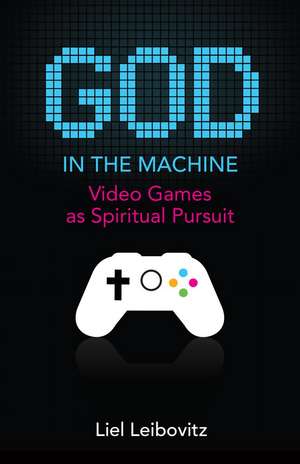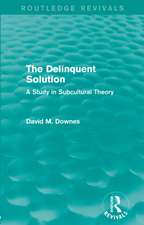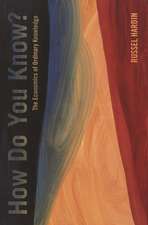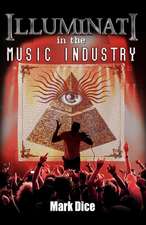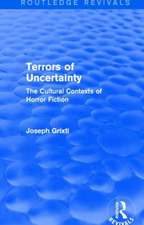God in the Machine – Video Games as Spiritual Pursuit: Acculturated
Autor Liel Leibovitzen Limba Engleză Paperback – 25 mai 2015
What might Heidegger say about Halo, the popular video game franchise, if he were alive today? What would Augustine think about Assassin’s Creed? What could Maimonides teach us about Nintendo’s eponymous hero, Mario? While some critics might dismiss such inquiries outright, protesting that these great thinkers would never concern themselves with a medium so crude and mindless as video games, it is important to recognize that games like these are becoming the defining medium of our time. We spend more time and money on video games than on books, television, or film, and any serious thinker of our age should be concerned with these games, what they are saying about us, and what we are learning from them. Yet video games remain relatively unexplored by both scholars and pundits alike. Few have advanced beyond outmoded and futile attempts to tie gameplay to violent behavior. With this rumor now thoroughly and repeatedly disproven, it is time to delve deeper. Just as the Museum of Modern Art in Manhattan recently acquired fourteen games as part of its permanent collection, so too must we seek to add a serious consideration of virtual worlds to the pantheon of philosophical inquiry.
In God in the Machine, author Liel Leibovitz leads a fascinating tour of the emerging virtual landscape and its many dazzling vistas from which we are offered new vantage points on age-old theological and philosophical questions. Free will vs. determinism, the importance of ritual, transcendence through mastery, notions of the self, justice and sin, life, death, and resurrection all come into play in the video games that some critics so quickly write off as mind-numbing wastes of time. When one looks closely at how these games are designed, their inherent logic, and their cognitive effects on players, it becomes clear that playing these games creates a state of awareness vastly different from when we watch television or read a book. Indeed, the gameplay is a far more dynamic process that draws on various faculties of mind and body to evoke sensations that might more commonly be associated with religious experience. Getting swept away in an engaging game can be a profoundly spiritual activity. It is not to think, but rather to be, a logic that sustained our ancestors for millennia as they looked heavenward for answers.
As more and more of us look “screenward,” it is crucial to investigate these games for their vast potential as fine instruments of moral training. Anyone seeking a concise and well-reasoned introduction to the subject would do well to start with God in the Machine. By illuminating both where video game storytelling is now and where it currently butts up against certain inherent limitations, Liebovitz intriguingly implies how the field and, in turn, our experiences might continue to evolve and advance in the coming years.
In God in the Machine, author Liel Leibovitz leads a fascinating tour of the emerging virtual landscape and its many dazzling vistas from which we are offered new vantage points on age-old theological and philosophical questions. Free will vs. determinism, the importance of ritual, transcendence through mastery, notions of the self, justice and sin, life, death, and resurrection all come into play in the video games that some critics so quickly write off as mind-numbing wastes of time. When one looks closely at how these games are designed, their inherent logic, and their cognitive effects on players, it becomes clear that playing these games creates a state of awareness vastly different from when we watch television or read a book. Indeed, the gameplay is a far more dynamic process that draws on various faculties of mind and body to evoke sensations that might more commonly be associated with religious experience. Getting swept away in an engaging game can be a profoundly spiritual activity. It is not to think, but rather to be, a logic that sustained our ancestors for millennia as they looked heavenward for answers.
As more and more of us look “screenward,” it is crucial to investigate these games for their vast potential as fine instruments of moral training. Anyone seeking a concise and well-reasoned introduction to the subject would do well to start with God in the Machine. By illuminating both where video game storytelling is now and where it currently butts up against certain inherent limitations, Liebovitz intriguingly implies how the field and, in turn, our experiences might continue to evolve and advance in the coming years.
Preț: 93.37 lei
Nou
Puncte Express: 140
Preț estimativ în valută:
17.87€ • 18.46$ • 14.87£
17.87€ • 18.46$ • 14.87£
Carte disponibilă
Livrare economică 04-18 martie
Preluare comenzi: 021 569.72.76
Specificații
ISBN-13: 9781599474816
ISBN-10: 1599474816
Pagini: 160
Dimensiuni: 140 x 216 x 15 mm
Greutate: 0.18 kg
Ediția:First Edition, 1
Editura: Wiley
Seria Acculturated
ISBN-10: 1599474816
Pagini: 160
Dimensiuni: 140 x 216 x 15 mm
Greutate: 0.18 kg
Ediția:First Edition, 1
Editura: Wiley
Seria Acculturated
Notă biografică
Liel Leibovitz is a visiting assistant professor at NYU Steinhardt, focusing primarily on the video game and interactive media research and theory. Having received his PhD from Columbia University in 2007, Leibovitz continues to study the ontology of electronic gameplay, exploring such diverse issues as human-machine interaction, gaming and the construction of player subjectivity, and representations of death and violence in video games. He is a member of the advisory board of the New York chapter of the Digital Games Research Association, a founding member of the NYU Faculty Council on Games, and a member of the academic advisory board of the American Jewish Historical Society. He is also the author or co-author of several books, including, most recently, The Chosen Peoples: America, Israel, and the Ordeals of Divine Election, co-written with Todd Gitlin, as well as a contributor to newspapers and magazines such as the Los Angeles Times, the Atlantic, Dissent, and Tablet.
Recenzii
“Many dismiss video games as a worthless pursuit, and some even go so far as to consider them a harmful and addictive activity that sets individuals towards violence. Liel Leibovitz defies those assumptions while explaining gaming’s allure and place in the world . . . this work is a thoughtful, well-written, and concise scholarly analysis of a popular pastime. As such, it is a recommended resource for college and university libraries.”
—Sarah E. Keil, Trevecca Nazarene University, The Christian Librarian
“Leibovitz’s book is brief but wildly ambitious, studded with references unexpected in writing on this subject.”
—New York Review of Books
“God in the Machine shows depth as well as breadth. It would be a fitting addition to a book discussion group or theological reading circle. Whether you come to the same conclusions as the author did or not, God in the Machine will change the way you see gaming from here on out. I recommend the book.”
—Michael Philliber "Liel Leibovitz has thought more deeply than anyone I know about the meaning of video games; he has managed to persuade me, without overloading my circuits, that they belong not to the seventh circle of hell—where I’d consigned them— but to the great American tradition that turns a dark theology of sin into redemptive popular entertainment."
—Jonathan Rosen, author of The Talmud and the Internet: A Journey Between Worlds
—Sarah E. Keil, Trevecca Nazarene University, The Christian Librarian
“Leibovitz’s book is brief but wildly ambitious, studded with references unexpected in writing on this subject.”
—New York Review of Books
“God in the Machine shows depth as well as breadth. It would be a fitting addition to a book discussion group or theological reading circle. Whether you come to the same conclusions as the author did or not, God in the Machine will change the way you see gaming from here on out. I recommend the book.”
—Michael Philliber "Liel Leibovitz has thought more deeply than anyone I know about the meaning of video games; he has managed to persuade me, without overloading my circuits, that they belong not to the seventh circle of hell—where I’d consigned them— but to the great American tradition that turns a dark theology of sin into redemptive popular entertainment."
—Jonathan Rosen, author of The Talmud and the Internet: A Journey Between Worlds
Descriere
In God in the Machine, author Liel Leibovitz leads a fascinating tour of the emerging virtual landscape and its many dazzling vistas from which we are offered new vantage points on age-old theological and philosophical questions. Free will vs. determinism, the importance of ritual, transcendence through mastery, notions of the self, justice and sin, life, death, and resurrection all come into play in the video games that some critics so quickly write off as mind-numbing wastes of time. When one looks closely at how these games are designed, their inherent logic, and their cognitive effects on players, it becomes clear that playing these games creates a state of awareness vastly different from when we watch television or read a book. Indeed, the gameplay is a far more dynamic process that draws on various faculties of mind and body to evoke sensations that might more commonly be associated with religious experience. Getting swept away in an engaging game can be a profoundly spiritual activity. It is not to think, but rather to be, a logic that sustained our ancestors for millennia as they looked heavenward for answers.
